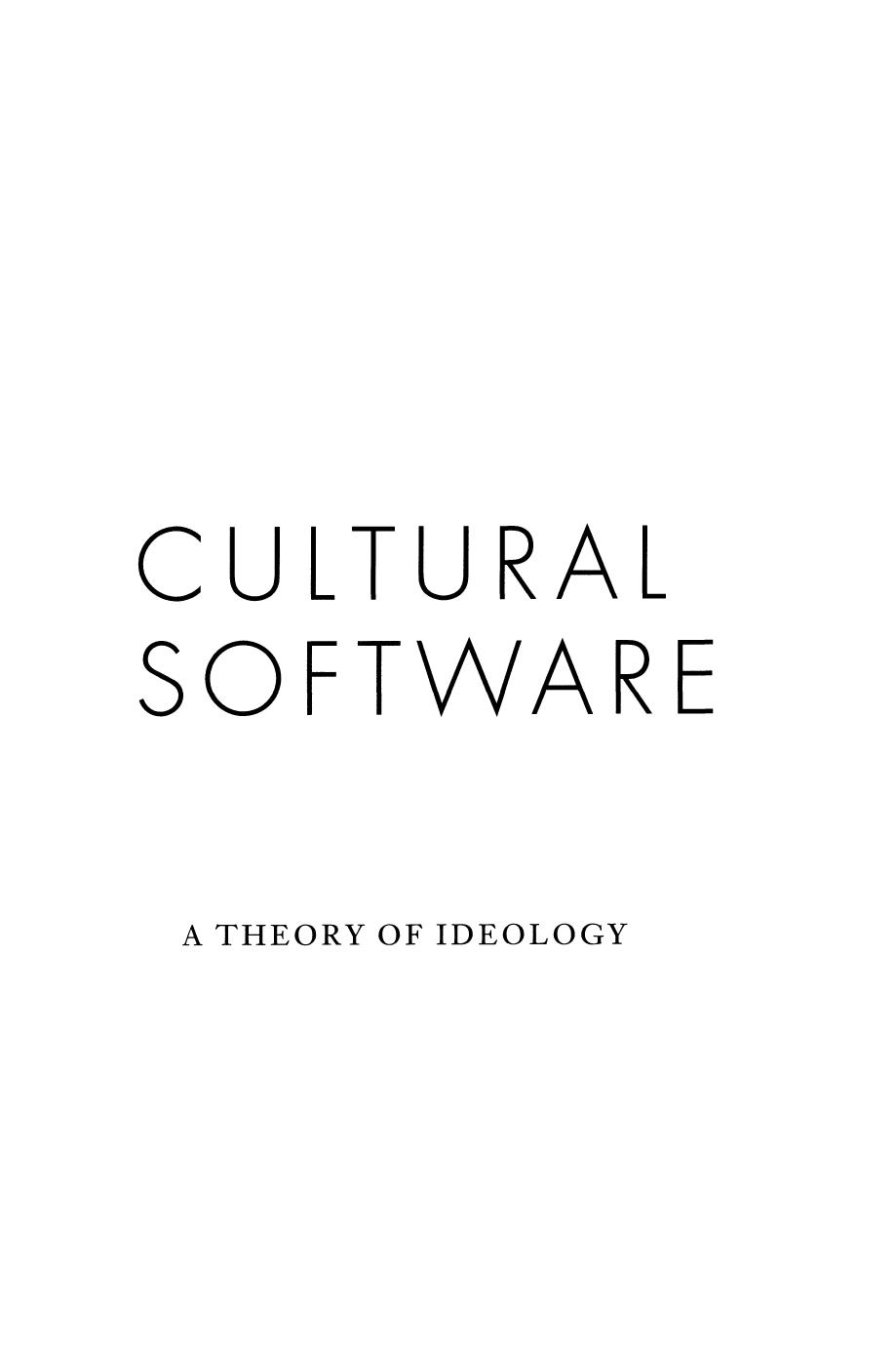Cultural Software: A Theory of Ideology by J. M. Balkin

Author:J. M. Balkin [Balkin, J. M.]
Language: eng
Format: epub, pdf
Tags: Philosophy, Science, Non-Fiction, Ideology, Social Science, Psychology, Law, Social Psychology, Cognitive Psychology, Linguistics
ISBN: 9780300072884
Google: kN-8QgAACAAJ
Amazon: 0300084501
Goodreads: 1807233
Publisher: Yale University Press
Published: 1998-05-14T23:00:00+00:00
Do All Cultures Have a Concept of Justice?
So far I have assumed that when we discuss questions of justice with another person, both of us are speaking about the same concept. But what happens if we relax this assumption? Does this undermine the idea of a transcendent ideal of justice?
Suppose that we come across a culture that lacks a word for justice. Instead, they have a concept they call dharmatzedek, a term that I borrow from the Sanskrit word for duty (dharma) and the Hebrew word for righteousness (tze dakah). (I combine the two words because I do not want the reader to assume that I refer to the concepts of justice in either Hinduism or Judaism.) According to the views of this hypothetical culture, dharmatzedek is a cosmic order of the universe. Social order is a special case of the cosmic order. Things adhere to dharmatzedek when they reflect the proper order of nature, an order that includes not only human beings but animals, gods, and even inanimate objects.
Can we still say that a transcendent ideal of justice is presupposed in our conversation with members of this culture? This is really the question of whether it is possible for us to have a conversation with them about what is just and not just. The fact that they have no such word does not mean that such a conversation is impossible. We modify our existing cultural software all the time in order to understand what others are saying. For example, I have just introduced the concept of dharmatzedek into the present discussion.
Let us suppose that our communications with this culture lead us to believe that by dharmatzedek they mean the concept of natural order that I have described above. Then we will be able to have a conversation with them, for our notion of justice is a notion of achieving appropriate social order and rectifying inappropriate social order. It overlaps with their concept of dharmatzedek even if it is not identical to it. Their sense of social order will be very different from ours, and they may use very different ways of expressing it and making claims about it. But once we create a theory of what their concept means to them, we can begin the process of understanding how the world makes sense to them. Conversely, from their point of view, we will have a very strange concept called “justice,” which concerns the order of society and the entitlements of individuals but does not concern their relationship to other things in the universe. They will see our concept of justice as a truncated and mangled conception of dharmatzedek, with an exaggerated focus on the concerns of individuals. But as soon as they formulate a notion in their own language that makes intelligible what we are talking about, they can begin to see that what we are saying makes sense from our perspective, even if they do not entirely agree with it.
Now suppose further that we discover that this culture is engaging in very inefficient forms of agriculture.
Download
Cultural Software: A Theory of Ideology by J. M. Balkin.pdf
This site does not store any files on its server. We only index and link to content provided by other sites. Please contact the content providers to delete copyright contents if any and email us, we'll remove relevant links or contents immediately.
| Comparative | Conflict of Laws |
| Customary | Gender & the Law |
| Judicial System | Jurisprudence |
| Natural Law | Non-US Legal Systems |
| Science & Technology |
American Kingpin by Nick Bilton(3875)
Future Crimes by Marc Goodman(3592)
The Meaning of the Library by unknow(2564)
Inside the Middle East by Avi Melamed(2349)
Why Nations Fail: The Origins of Power, Prosperity, and Poverty by Daron Acemoglu & James Robinson(2285)
On Tyranny by Timothy Snyder(2227)
Living Silence in Burma by Christina Fink(2059)
Putin's Labyrinth(2016)
The Mastermind by Evan Ratliff(1933)
The Smartest Kids in the World by Amanda Ripley(1843)
Think Like a Rocket Scientist by Ozan Varol(1813)
Law: A Very Short Introduction by Raymond Wacks(1737)
It's Our Turn to Eat by Michela Wrong(1723)
The Rule of Law by Bingham Tom(1690)
Philosophy of law a very short introduction by Raymond Wacks(1662)
Leadership by Doris Kearns Goodwin(1632)
A Dirty War by Anna Politkovskaya(1626)
Information and Communications Security by Jianying Zhou & Xiapu Luo & Qingni Shen & Zhen Xu(1611)
Civil Procedure (Aspen Casebooks) by Stephen C. Yeazell(1554)
